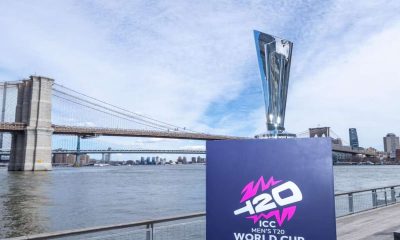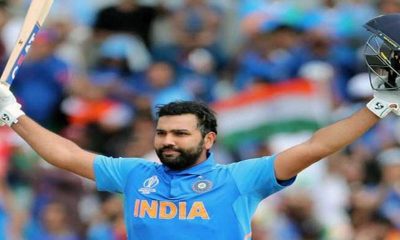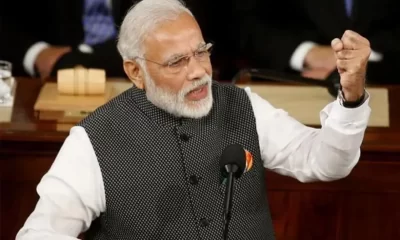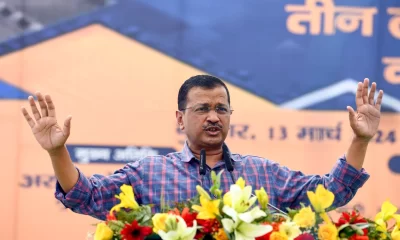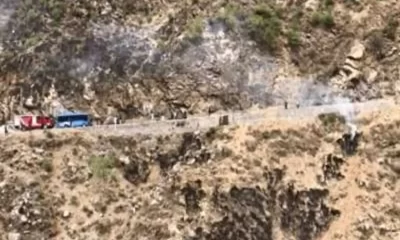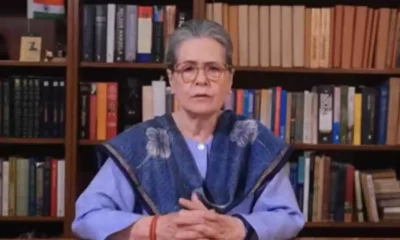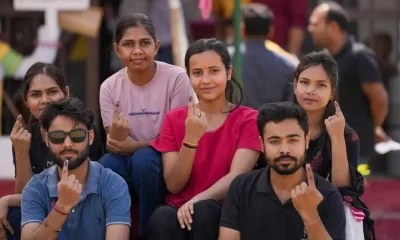Latest world news
Pakistan Urges India to Begin Peace Talks Considering Kashmir A “Reality”
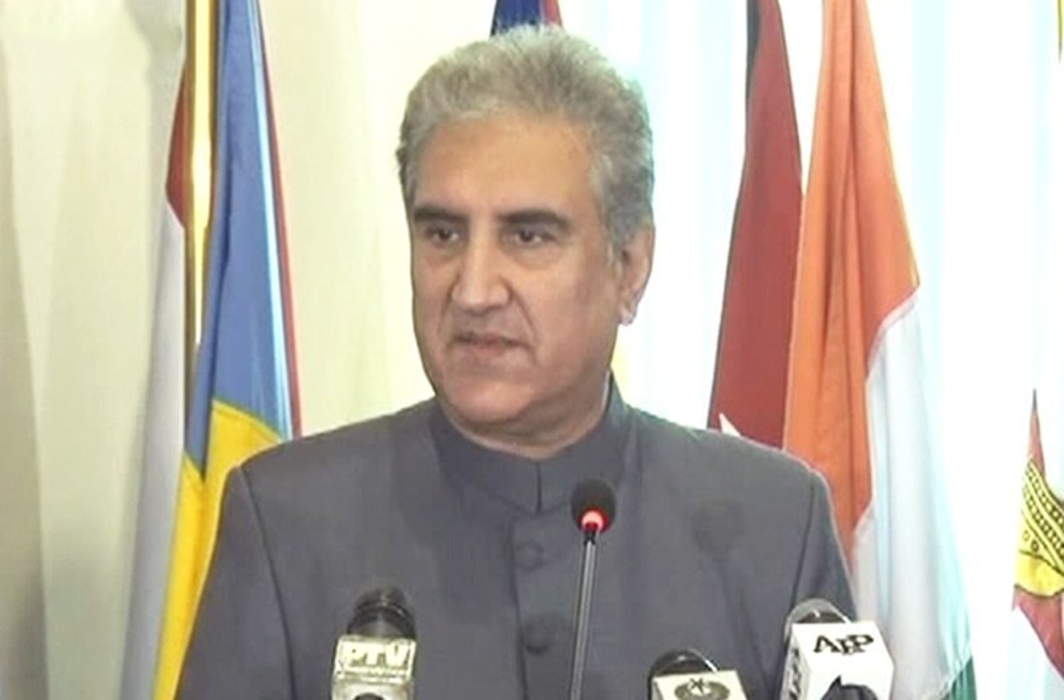
New Foreign Minister Addresses First Press Conference
Pakistan’s new foreign minister Shah Mehmood Qureshi has urged India to begin peace talks and shun adventurism for coming together saying issues “will not be solved overnight” and “Kashmir is a reality” an issue both sides acknowledge.
According to Dawn, Pakistan Tehreek-i-Insaf (PTI) Vice Chairman, Shah Mehmood Qureshi, while addressing his first press conference after being sworn in at the Foreign Office (FO) in Islamabad on Monday, said, “I will try to bridge the trust deficit between Pakistan and other regional countries.”
He began with addressing people of Afghanistan and their leader Ashraf Ghani and indicated his intention to visit Kabul. He said, “I want to bring a solid message to the people of Afghanistan. The two countries share a future and geography, and we have to work together and begin our long journey.”
While referring to India, Qureshi said, “My second message is for the government of India. I want to tell the India foreign minister that we are not just neighbor: we are atomic powers. We have a lot of common resources.”
Read More: Pakistan Supports UN for Rejecting Indian Stance On Kashmir Report
While referring to recent letter received by Prime Minister Imran Khan from India’s PM Narendra Modi, in which he indicated the beginning of talks, Qureshi asserted, “India and Pakistan have to move forward keeping realities before them.”
He further said, “Us coming to the table and talking peace is our only option. We need to stop the adventurism and come together. We know the issues are tough and will not be solved overnight, but we have to engage. We cannot turn our cheek. Yes we have outstanding issues. Kashmir is a reality; it is an issue that both our nations acknowledge.”
He said, “We need a continued and uninterrupted dialogue. This is our only way forward. We may have a different approach and line of thinking, but I want to see a change in how we behave.”
Qureshi asserted, “Pakistan’s interest is at our very centre of foreign policy. Wherever we need to fix our foreign policy we will fix it. Some forces have been trying to run Pakistan into isolation and marginalisation. And why wouldn’t they do it? Your country didn’t have a foreign minister ─ who is meant to be your chief diplomat. This gives your opponents open playing fields.”
His remarks were understood to be critical of earlier government for not having a full-fledged foreign minister for a long time. Nawaz Sharif, kept the portfolio with himself having Srataj Aziz as an advisor on foreign affairs.
Read More: Pakistan placed on ‘grey list’, India welcomes FATF’s move
Comprehensive dialogue between India and Pakistan were suspended after Mumbai terror attack in 2008. Terror attack on Pathankot Air Force base, terrorists’ assault on security personnel in Uri in 2006 and pronouncement of death sentence by Pakistan’s military court to Kulbhushan Jadhav on spying charges hindered in resumption of talks between the two countries.
Read More: India summons Pakistan Deputy High Commissioner
Shah Mehmood Qureshi served as Pakistan’s foreign minister from 31 March 2008 to 9 February 2011 during Pervez Musharraf and Asif Ali Zardari regime. He assumed office of Vice Chairman of Pakistan Tehreek-i-Insaf in December 2011. Earlier, he held different ministerial portfolios in Punjab province during 1988 to1993.
Latest world news
World Earth Day 2024: Google Doodle showcases aerial view of planet’s natural beauty
Google celebrated Earth Day 2024 with a special doodle featuring an aerial view of our planet’s biodiversity.
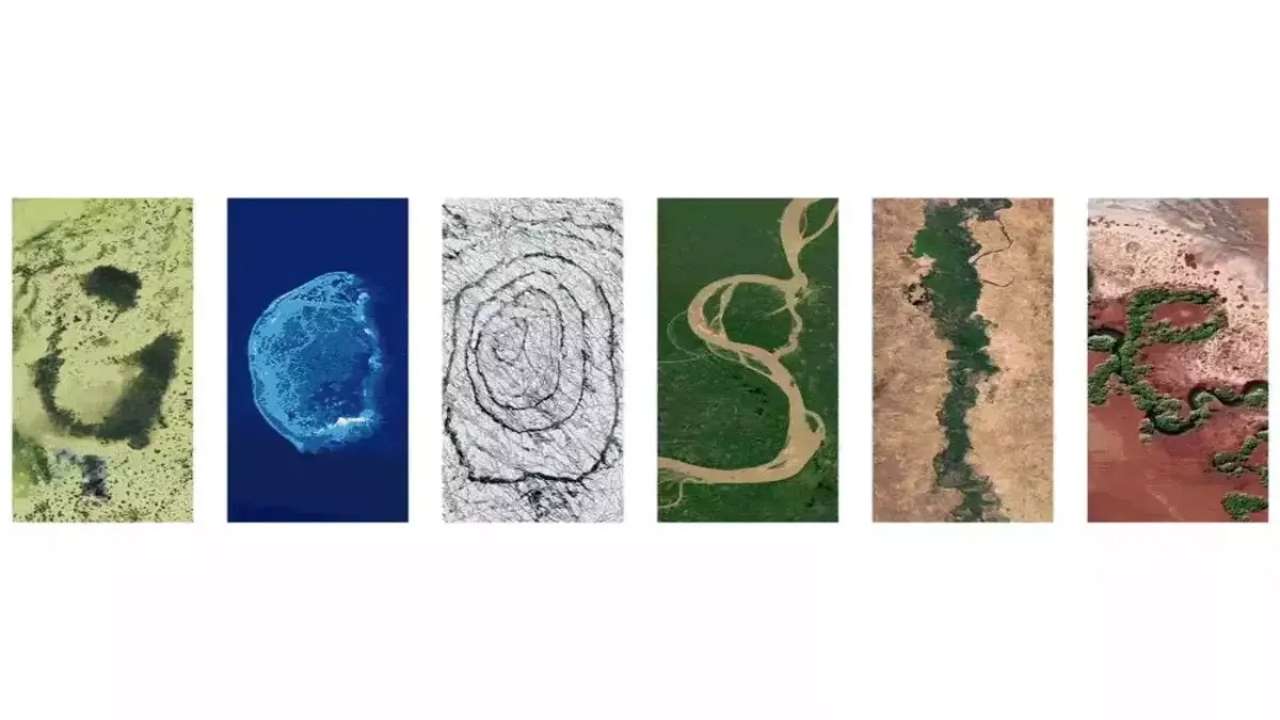
Google shared a doodle today to celebrate World Earth Day 2024, which showcased aerial photos of the planet’s biodiversity and natural beauty. Google reminded us of the importance of protecting planet earth for future generations with the help of this doodle.
The Google letters depict specific locations across the globe where people, communities, and governments work every day to help protect the planet’s natural beauty, biodiversity, and resources, according to the explanation of the annual Earth Day 2024 doodle on their website.
It said, these examples remind us that there’s much more to do to address the climate crisis and biodiversity loss, but also offer the promise of hope and optimism.
The islands of Turks and Caicos are represented by the letter “G.” The islands’ conservation efforts are concentrated on protecting important regions for biodiversity and addressing persistent environmental problems.
The largest reef in the southern Gulf of Mexico and a UNESCO biosphere reserve, Scorpion Reef National Park, is represented by the letter “O” in the Mexican flag.
The letter “O” features Iceland’s Vatnajokull National Park, which was designated as a national park in 2008 following decades of advocacy. The ecology within and surrounding the biggest glacier in Europe is safeguarded by this UNESCO World Heritage Site.
The letter “G” has the Jau National Park in Brazil on it. It is a UNESCO World Heritage Site and one of the biggest forest reserves in South America.
The Great Green Wall of Nigeria is represented by the letter “L,” and the Pilbara Islands Nature Reserves of Australia are represented by the letter “E.”
Meanwhile, Earth Day is a worldwide event that promotes protection of the environment every year. April 22 serves as a reminder of the importance of conservation efforts and sustainable practices to guarantee a healthier world and a brighter future.
The occasion inspires people across the world to come together and take action to protect the environment, strengthening our bonds with nature and promoting good change.
Latest world news
Bigg Boss 14 contestant Rahul Vaidya struggles walking in knee deep water, compares Dubai rains with Mumbai floods
Singer and TV personality Rahul Vaidya was recently stranded in the Dubai rains.

Rahul Vaidya, who was in Dubai ahead of his show which was scheduled to take place today, left the country due to heavy rains and reached Kolkata. The artist shared on social media his encounters in the UAE city, including challenges like walking through knee-deep water. Rahul provided an update regarding the heavy rainfall in Dubai on his Instagram profile.
The Bigg Boss 14 contestant revealed that he was in Kolkata and prepared to do an evening performance. Recalling the terrifying period he went through, Vaidya said there was a lot of confusion and panic in Dubai. The situation was similar to that when heavy floods hit Mumbai in 2005.
Vaiday also posted seval other images and videos of cars that were underwater and flooded roadways. The Bigg Boss 14 contestant, who shared his ordeal, claimed that even though it had just rained for two hours, the situation was dire.
In one of the video, which went viral he can be seen struggling in walking in knee-deep water. He can be also seen holding his sneakers in one hand and with other hand he was seen managing other things.
This is the result of the two hours of rain that it had, he can be heard saying in the video. Vidya also said he dosen’t believe Dubai is accustomed to a lot of rain. Everything had stopped working, he remarked.
After taking part in the first season of the singing reality show Indian Idol, Rahul Vaidya gained widespread recognition. In addition to Bigg Boss, he took part in Khatron Ke Khiladi 11.
Meanwhile, heavy rains that triggered flooding in the UAE and Bahrain, which left 18 people dead in Oman on Sunday and Monday, have paralyzed the financial hub of the Middle East, Dubai.
A lot of incoming flights were diverted from Dubai’s international airport because of the rain. At 7:26 p.m., the busiest airport in the world for foreign visitors stopped accepting new arrivals; a gradual resumption was announced for more than two hours later.
Images of planes navigating flooded tarmacs are making the rounds on social media.
According to pictures shared on social media, the flagship malls Dubai Mall and Mall of the Emirates both experienced heavy floods, while at least one Dubai Metro station had water up to the ankles.
There were several road collapses, severe flooding in residential areas, and numerous reports of leaks from windows, doors, and roofs.
Due to the unfavourable weather, schools around the United Arab Emirates were forced to close, and as more storms are predicted, the closures are anticipated to last until Wednesday. The government of Dubai allowed its staff to work remotely till this Wednesday.
Latest world news
Dubai sky turns green during storm in UAE, video goes viral
The UAE witnessed record-breaking rainfall on Tuesday and the National Centre of Meteorology recorded 254 mm of rainfall in less than 24 hrs in the Khatm Al Shakla area in Al Ain.

1 person was killed in UAE as it witnessed heavy rainfall on Tuesday, stranding commuters, flooding roads, disrupting trains and flights and resulting in water leakage from mall ceilings. The UAE witnessed record-breaking rainfall on Tuesday and the National Centre of Meteorology recorded 254 mm of rainfall in less than 24 hrs in the Khatm Al Shakla area in Al Ain. It is being said that the rainfall was the highest documented since the start of data collection in 1949.
The heavy rainfall in UAE came days after a similar situation in neighbouring Oman, where 13 people were killed in flash floods. Many parts of Oman saw torrential rains, which caused students to be trapped in buses and swept away motorists and trapped people in their homes.
Videos from Dubai circulating on social media showed widespread waterlogging on roads in Abu Dhabi, Dubai and other important cities. This left daily commuters in cars and other vehicles struggling to get back home. Dubai metro station too was seen flooded and closed.
One such video circulating on social media shows the aerial view of the city of Dubai from the top of a building. In the video the stormy winds are seen blowing over the city of Dubai. As the storm intensifies the Dubai sky turns green and ultimately gets covered by heavy rainfall. The video has gone viral on social media with more than 1.1 million views.
Another video showed water leakage from the ceilings of shopping malls, flooding the floors and destroying goods. A video which was shot in the famous Mall of the Emirates, showed pieces of ceiling falling as the rainwater gushed inside. Videos from many outlets of the Deira City Centre mall chain showed escalators being rendered unusable. Majid Al Futtaim, the company which owns the Mall of Emirates, said that the shopping complexes have been kept open and the customers are being sent away from the flooded areas.
-
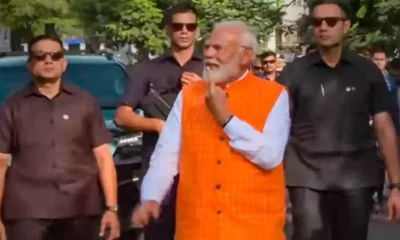
 2024 Lok Sabha Elections14 hours ago
2024 Lok Sabha Elections14 hours agoPM Modi votes at a polling booth in Gandhinagar Lok Sabha seat, urges people to ensure record turnout
-
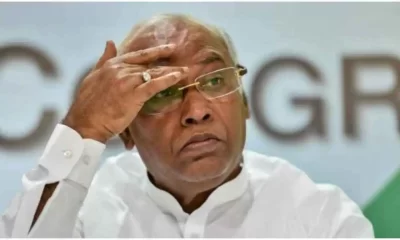
 2024 Lok Sabha Elections12 hours ago
2024 Lok Sabha Elections12 hours agoMallikarjun Kharge casts vote in Kalaburagi, Karnataka
-
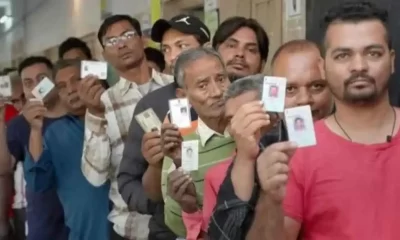
 2024 Lok Sabha Elections10 hours ago
2024 Lok Sabha Elections10 hours agoAround 60.19% voter turnout till 5pm, Assam records highest voter turnout of 74.86%
-
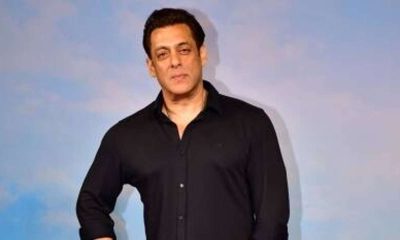
 India News13 hours ago
India News13 hours agoSalman Khan firing case: Mumbai Crime Branch arrests fifth accused
-
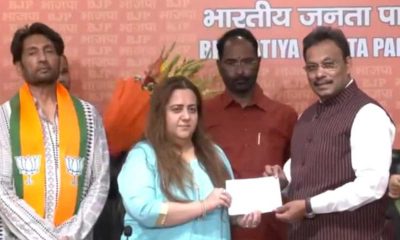
 2024 Lok Sabha Elections11 hours ago
2024 Lok Sabha Elections11 hours agoFormer Congress leader Radhika Khera joins BJP days after quitting over harassment
-
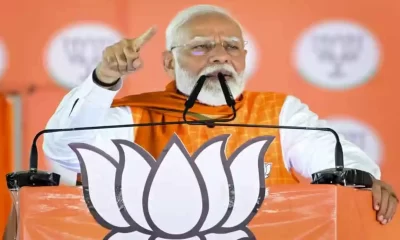
 2024 Lok Sabha Elections11 hours ago
2024 Lok Sabha Elections11 hours agoPM Modi addresses rally in Khargone, urges people to choose between vote jihad or the establishment of Ram Rajya
-

 Cricket news12 hours ago
Cricket news12 hours agoKKR’s Kolkata-bound flight diverted twice due to bad weather, team spends night in Varanasi
-
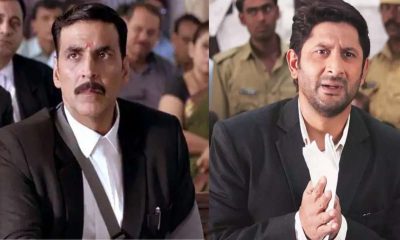
 Entertainment8 hours ago
Entertainment8 hours agoJolly LLB 3: Akshay Kumar, Arshad Warsi starrer lands in legal trouble, accused of disrespecting judiciary


